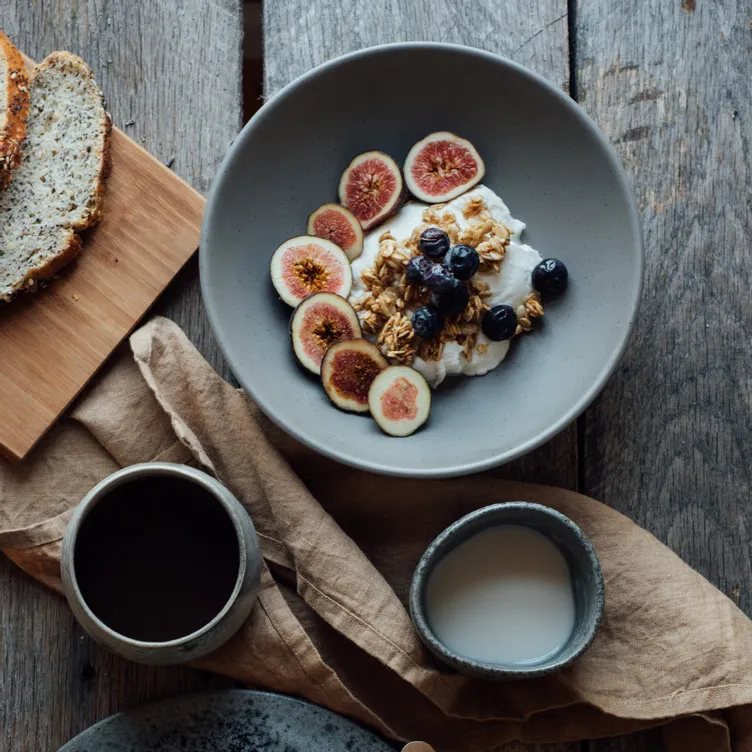By Charalampos Karouzos,
Breakfast, literally meaning “breaking the fast” — the overnight fast — is considered the most important meal of the day. Children are taught from an early age that breakfast is a “must” before school. Indeed, people still follow the saying, “Eat breakfast like a king, lunch like a prince, and dinner like a pauper”, attributed to Adele Davis, an American Nutritionist, in 1954. However, numerous individuals do not have breakfast as a routine, and this is attributed to the fast pace of modern life. Employees are supposed to be present in the office early; students rush to not miss the first hour of school — a constant struggle. Skipping breakfast is a seemingly universal habit that, in fact, is associated with negative effects on health.
“Eat like a king”, but why are these first bites actually important for our health? During the night sleep, our metabolism is altered due to the lack of exercise and the lack of food. We occupy a new state in which energy for the organs is provided through the catabolism-breaking down, of already existing energy in the form of Glycogen or Fats. So, when we have our breakfast, there is a change in the provider of energy which now will be the ingested calories, rather than the stored energy, that will be replenished. This change is crucial to provide the necessary fuel to begin our day and give us the energy to complete our tasks.
In addition, eating breakfast has the important role of decreasing appetite, and increasing satiety, thereby reducing overeating later in the day, thus preventing episodes of excessive calorie consumption. The increased feeling of satiety after breakfast has been highlighted by several large prospective studies that support the association between breakfast consumption and lower risk of obesity and weight gain. These results show that the presence of a breakfast improves glycemic control, which is the control of energy levels in the body. Improved Glycemic control is necessary to maintain an “active” metabolism, providing a steady flow of energy to organs, and especially to the brain, during fasting or eating. As a result, the first bites stop abruptly in the fasted state, thus stopping the excessive feeling of hunger breakfast-skippers experience during lunchtime.

Apart from the intake of calories in the morning, we should focus our attention on the nutrient value of breakfast. Food apart from energy for our body is the source of necessary nutrients for our cells, for instance, a slice of pizza and a rich salad can have the same number of calories, but the nutritional values are very different — in favor of the salad, of course. Extensive research on the topic has associated the higher overall intake of necessary nutrients with breakfast eaters, indicating the presence of higher levels of fibers, vitamins, and unsaturated fats, whereas breakfast skippers tend to have significantly lower than the Daily Recommended amount of fibers, vitamins, protein, and healthy fats.
Breakfast, however, is not only linked to weight gain and nutritional value, but previous studies have also hinted and more robust newer researchers have proven that there is a strong correlation between the absence of breakfast with the development of serious diseases. A recent metanalysis published in 2021 by a team of Chinese researchers, compared the outcome of 15 different studies, involving 417,093 participants, and identified an increased risk of breakfast-skippers developing serious medical conditions. The absence of breakfast is linked to an increased risk of developing: Type 2 Diabetes Mellitus, Hypercholesterolemia (high LDL), Obesity, Visceral Adipose Tissue increase, Hypertension, Stroke, Cardiovascular Disease, Coronary Heart Disease, Cardiovascular Mortality, and Metabolic Syndrome. This plethora of conditions varies based on the number of breakfasts per week; individuals that had breakfast 7 times per week were shown to have significant benefits compared to people that had breakfast less than 3 times per week, or even 3 or more times per week. It must be mentioned that even in the case of one day being skipped, there was a noteworthy increased risk of developing the aforementioned conditions.
Apart from the value of breakfast as a source of fuel and its association with diseases studies have seen a positive correlation between a regular breakfast and a well-functioning Circadian Rhythm, the internal biological clock. Throughout human history, different meals have been implemented at the same time roughly in a day, this normal for us sequence of events acts as a regulator for the circadian rhythm. In which imbalances from normal function have been linked with a variety of neurological and psychiatric disorders. It’s been shown in recent studies that irregular timing of breakfast specifically, can significantly decrease satiety during the day. Thus leading people to overeat at lunch, which will further increase the production of hunger-related hormones that are associated with imbalanced glucose-energy metabolism and obesity.

Although the presence of breakfast and its accurate placing at the beginning of the day play an important role in health, the quality of the food consumed, however, is of major concern as well.
Different people and different cultures have different foods associated with breakfast, for some, breakfast can be a soft chocolate-filled pastry, for others some steamed buns, or the very commonly seen breakfast cereal. The great diversity, in terms of health, is not as important as the quality of the meal. This was proven in a study in Spain, where after collecting data regarding the quality of the breakfast or its absence, adolescent students, concluded that they are several benefits of a high-quality breakfast. Adolescents who ate a good quality breakfast showed better Health-Related Quality of Life (HRQOL) and lower levels of stress and depression than those who ate a poor or very poor-quality breakfast. Furthermore, compared to breakfast eaters who consumed a subpar or really subpar breakfast, breakfast skippers displayed greater HRQOL and lower levels of stress and despair. These results highlight the value of eating a high-quality breakfast as opposed to just having breakfast or skipping it altogether.
So, it has been well highlighted that breaking the overnight fast apart from a healthy habit to “activate” your metabolism, plays a crucial role in the overall health of the individual, reducing the risk of developing serious medical conditions. However, the quality of these first bites should be looked after, as a coffee and a piece of toast are superiorly inferior to a well-balanced breakfast that increases the health-related quality of life and reduces stress and depression. In the end, however, the famous chef Antony Bourdain summarised the whole idea of breakfast perfectly by stating: “What is a nicer thing can you do for somebody than make them breakfast?”.
References
- Michael J. Gibney,* ID, Susan I. Barr ID, France Bellisle, Adam Drewnowski, Sisse Fagt, Barbara Livingstone, Gabriel Masset ID, Gregorio Varela Moreiras, Luis A Moreno, Jessica Smith, Florent Vieux, Frank Thielecke and Sinead Hopkins, (2018), “Breakfast in Human Nutrition: The International Breakfast Research Initiative”, 1-12, Available here
- Ghazi, F. H., (2021), “Effects of regular breakfast habits on metabolic and cardiovascular diseases”, 100:44, Systemic Review and Analysis, Available here
- Rosario Ferrer-Cascales, Miriam Sánchez-SanSegundo, Nicolás Ruiz-Robledillo, Natalia Albaladejo-Blázquez, Ana Laguna-Pérez and Ana Zaragoza-Martí, (2018), “Eat or Skip Breakfast? The Important Role of Breakfast Quality for Health-Related Quality of Life, Stress and Depression in Spanish Adolescents”, 1-5, International Journal of Environmental Research and Public Health, Available here




